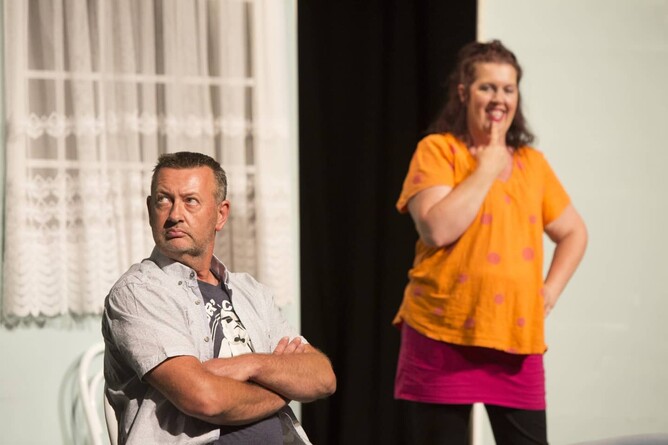I’ve been improvising since I was a kid, but it’s still a skill that I love building on and will keep doing for the rest of my life.
What I love about improv is you’re never done. You don’t arrive. It’s an ongoing process like learning a language – you learn the basics, you start practising the language, your confidence grows, and you feel ready to take it to the next level.
That’s why improv is great for any personality type or skill level. It’s made for beginners, for people who’ve been doing it for yonks and everyone in between. It’s for the shy people and the outgoing people. It’s inclusive, fun, experimental and safe.
Here’s five reasons why improv is for everyone.
Trust: Flaming Mojo’s improv workshops are very secure and supportive.
From the get-go, I lay down some ground rules. There’s no judging. It is a confidential space: what happens in a workshop, stays in the workshop. Sometimes people end up sharing a story that’s personal to them. That’s great, but it’s not to be repeated elsewhere.
It’s not about ‘drop the mic’ moments or show stopping performances. It’s about practise and confidence building.
My improv classes are not about learning how to become a master performer or about being great on stage or camera (although this can be a nice side-effect). They are about practising skills so you can be more responsive, creative, and successful at work or life in general.
You’re not alone. It’s a group activity.
Everybody in the workshop has a chance to join in and try out different exercises. But people won’t be put on the spot or singled out. This is a great way to build your confidence incrementally, rather than being thrown straight in the deep end where you’re at risk of not coming back.
Everyone has a chance to speak and listen.
People who are natural listeners will get the space to speak. People who tend to lead conversations will learn how to step back and listen. Roles will be reversed, and group dynamics may shift on their axis. This is a good thing. The art of conversation is not dead – we just need to get out there and practise more.
It’s not about power play or control. It’s about developing understanding and empathy.
There's lots of activities we can do in improv like role playing. Here you get to put yourself in the client’s position or your manager’s position which is a great way to build understanding and empathy and remove some barriers.


